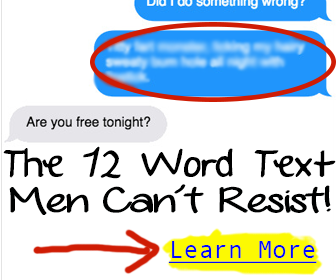Introduction:
Eating habits are an essential part of our lives, and it can be challenging when two people in a relationship have different eating habits. It’s not just about dietary restrictions or preferences; it’s about respecting each other’s choices and finding a way to make it work. In a loving and nurturing relationship, couples can navigate their different eating habits while still feeling supported and cared for. Here are 15 signs that you’re in a loving and nurturing relationship, even with different eating habits.
Table of Contents
1. You Respect Each Other’s Choices:
One of the most important signs of a loving and nurturing relationship is respecting each other’s choices. If one partner is vegan and the other isn’t, they can still find a way to respect each other’s choices and make meals together that work for both of them. It’s all about compromise and finding a middle ground.
2. You Communicate Effectively:
Effective communication is key in any relationship, especially when it comes to eating habits. If one partner has a food allergy or intolerance, it’s crucial to communicate this clearly to the other partner. Communication also means listening to each other and finding solutions that work for both of you.


3. You’re Open-Minded:
In a relationship with different eating habits, it’s essential to be open-minded. One partner may have never tried vegan food before, while the other partner may have never tried meat. Being open-minded and willing to try new things is crucial in finding a middle ground and making meals together.
4. You Cook Together:
Cooking together is a great way to bond and compromise when it comes to different eating habits. One partner may be responsible for the meat dish, while the other partner makes the vegan dish. Cooking together also ensures that both partners have a say in what they eat.
5. You’re Supportive:
In a loving and nurturing relationship, partners support each other. If one partner is trying to eat healthier, the other partner should support them and find ways to make healthy meals together. Supporting each other’s eating habits also means not pressuring each other to eat something they don’t want to.
6. You Don’t Judge Each Other:
Judgment has no place in a loving and nurturing relationship. If one partner is vegetarian and the other isn’t, there should be no judgment from either partner. Each partner should respect the other’s choices and find a way to make it work.
7. You Share Meals Together:
Sharing meals together is an important part of any relationship. Even if you have different eating habits, you can still share meals together that work for both of you. For example, if one partner is gluten-free, you can still share a gluten-free pasta dish together.
8. You’re Understanding:
Understanding each other’s eating habits is crucial in a relationship with different eating habits. If one partner has a food allergy, the other partner should be understanding and take precautions to ensure that they don’t accidentally consume the allergen. Being understanding also means not making fun of each other’s eating habits.


9. You Have a Variety of Foods:
In a relationship with different eating habits, it’s important to have a variety of foods on hand. This ensures that both partners have options that work for them. For example, if one partner is vegan, there should be vegan options available, but there should also be options for the other partner.
10. You Respect Each Other’s Boundaries:
Respecting each other’s boundaries is crucial in any relationship. If one partner doesn’t want to eat meat, the other partner should respect that and find ways to make meals together that don’t include meat. It’s all about compromise and finding a middle ground.
11. You’re Patient:
Patience is key in any relationship, especially when it comes to navigating different eating habits. It may take time to find a routine that works for both partners, but with patience and understanding, it’s possible to find a way to make it work.
12. You Plan Meals Together:
Planning meals together ensures that both partners have a say in what they eat. It also ensures that there are options available that work for both partners. Planning meals together can also be a fun way to bond and try new recipes together.
13. You Find Common Ground:
Even with different eating habits, there is still common ground to be found. For example, both partners may enjoy Thai food or Italian food, even if one partner is vegan and the other isn’t. Finding common ground ensures that both partners feel heard and respected.


14. You’re Flexible:
Flexibility is crucial in any relationship, especially when it comes to eating habits. If one partner is allergic to a certain food, the other partner should be willing to make adjustments to ensure that both partners can still enjoy meals together. Being flexible also means being willing to try new things and experiment with different recipes.
15. You Show Love and Affection:
Finally, in a loving and nurturing relationship, partners show love and affection to each other. Whether it’s through cooking a special meal, bringing home a treat, or simply saying “I love you,” showing love and affection ensures that both partners feel appreciated and cared for.
Finally! The Biggest Secret to becoming a man’s deepest Passion and Priority in life: Learn More
Conclusion:
In a relationship with different eating habits, it’s possible to create a loving and nurturing environment where both partners feel respected and supported. By respecting each other’s choices, communicating effectively, being open-minded, and finding common ground, couples can navigate their different eating habits and still feel connected. Ultimately, a loving and nurturing relationship is about compromise, understanding, and showing love and affection to each other.



